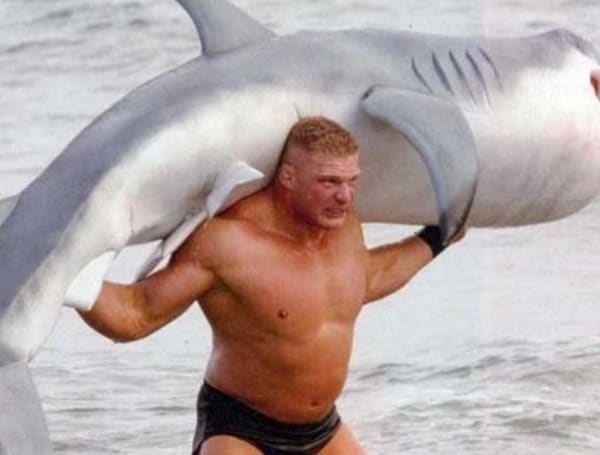It may be difficult to peg the exact moment Corporate America devolved into asinine wokeism, but January 2019 is a fairly vibrant highway marker.
That was the month Gillette released a new commercial that took on “toxic masculinity,” and overtly maintained that men – especially fathers – needed to be kinder, gentler, softer, squishier, less aggressive. In other words, more like women.
“Bullying, the MeToo movement against sexual harassment, toxic masculinity, is this the best a man can get?” the voiceover asked.
Conservatives panned the pitch.
British TV personality Piers Morgan, for example, who was recently canceled for some truth-telling about Meghan Markle, tweeted, “I’ve used @Gillette razors my entire adult life but this absurd virtue-signalling (sic) PC guff may drive me away to a company less eager to fuel the current pathetic global assault on masculinity. Let boys be damn boys. Let men be damn men.”
Morgan and others who thought like him didn’t win over any recruits from the woke brigades.
But a new study has proven him right.
“In some men, having traditional masculine characteristics such as competitiveness and adventurousness was linked to being better fathers to infants, a new study found,” Ohio State University said in a press release last week.
The study was published in the journal Psychology of Men and Masculinities and was led by Ohio State psychology professor Sarah Schoppe-Sullivan.
“The researchers were surprised that traits often seen as old-fashioned male stereotypes were linked to more positive parenting behaviors,” the press release said, quoting Schoppe-Sullivan. “It suggests that some men are looking for new ways to be a father.”
The study asked men who were expectant fathers to answer questionnaires rating themselves on “the seven stereotypical masculine characteristics”: competitive, daring, adventurous, dominant, aggressive, courageous, and stands up to pressure.
Nine months after the baby was born, researchers visited the men to judge their interactions with their infants.
As Ohio State’s release noted, “Researchers were surprised to find that the more men said they fit the stereotypical definition of ‘real men,’ the more they were also rated as showing good parenting behavior. … It may be that men who used these traditionally masculine characteristics to succeed in their careers are trying to find ways to apply them to their jobs as parents.”
Schoppe-Sullivan said in the release, “The fathers who see themselves as competitive and adventurous and the other masculine traits tended to be really engaged with their kids. They were not checked out. These dads may be saying that being a father is an important job, too, and I’m going to use the same traits that help me succeed at work to make me a successful father.”
The study comes with a caveat, the release observed. The participants admitted to researchers that they believed “they should be nurturing, highly involved fathers.”
On one hand, that perhaps shows the effect of decades of feminist preaching about what supposedly makes a man.
On the other, however, Annie Holmquist, an editor at the conservative Intellectual Takeout website, suggested in commenting on the study that people shouldn’t confuse gentleness with the wimpy view of men as shown in the politically correct Gillette commercial.
“Perhaps this is surprising to those living in a ‘woke,’ politically correct, feminist society,” Holmquist noted of all the “surprise” recorded by researchers, “but it shouldn’t be to those who look at fathers through history.”
Adding that we face a “crisis” with boys who lack, dare we say it, manly-man role models, Holmquist asked whether that situation would “begin to be resolved if we encouraged fathers to practice and model their manly virtues once again, showing not only love and gentleness, but courage, competitiveness, and an adventurous spirit as well?”
Ohio State may have just answered that.

